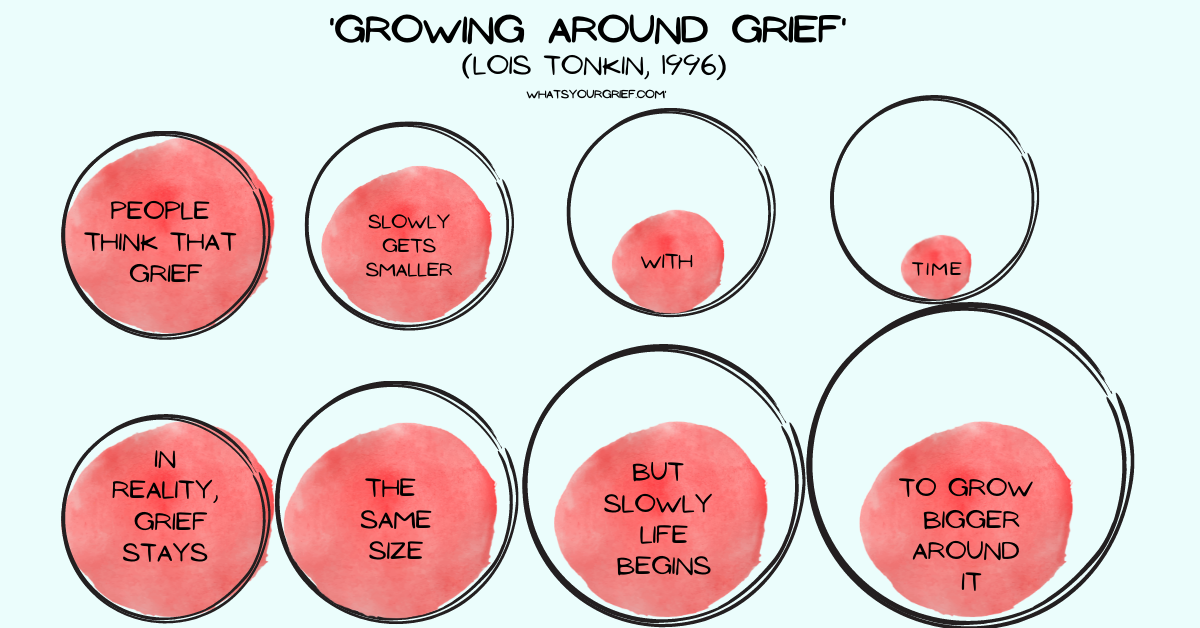Contents
Grief, for example, is the occasion for acknowledging the value of that which has been experienced. (James Hollis, The Middle Passage: From Misery to Meaning in Midlife)
Grief is a natural response to loss, though it can become unhealthy if we get stuck in it. I’d always associated grief with mourning and death, but since the COVID-19 pandemic of the past few years I’ve learned that grief can come from the loss of many things one cares about—a job, a place, a way of life. In fact, feeling like you’re not entitled to your grief because the loss isn’t “big enough” is called disenfranchised grief and adds another challenging layer to coping.
We mourn loss in stages
The Kübler-Ross model outlines five basic stages of grief (though critics point to a lack of empirical basis and the fact that the stages don’t always proceed linearly):
- Denial
- Anger
- Bargaining
- Depression
- Acceptance
Grief doesn’t go away, we grow around it

Grief is love with no place to go
Grief, I’ve learned, is really just love. It’s all the love you want to give, but cannot. All that unspent love gathers up in the corners of your eyes, the lump in your throat, and in that hollow part of your chest. Grief is just love with no place to go. (Jamie Anderson, emphasis mine)